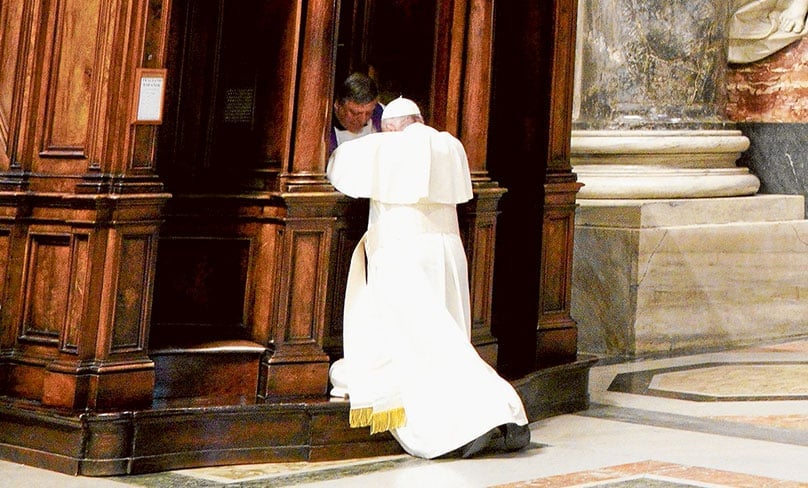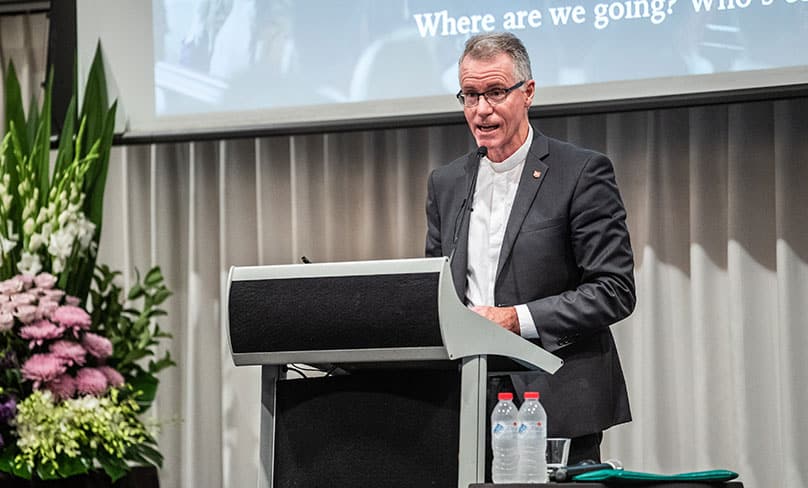
Recent changes to child protection laws in the ACT have been welcomed by the Archdiocese of Canberra and Goulburn but the Church has cautioned that pressure to break the confessional seal in cases of child abuse reveal a misunderstanding about the nature of the sacrament.
Canberra-Goulburn archdiocesan vicar general Fr Tony Percy welcomed the bulk of the new legislation as “fantastic”.
Changes to the territory’s Crimes Act require any adult who knows or believes a child is being abused to report the matter to police. In addition, mandatory reporting requirements have been extended to all clergy, while an exemption for the seal of confession was removed from 1 April.
Fr Percy said the changes announced last week will have the effect of drawing the whole community into assuming responsibility for child safety, which is important to capture child abuse cases that may occur both within and outside of institutions.
Related article: Victorian Confession seal fight is looming
“What [ACT Chief Minister]Andrew Barr and the Attorney General Gordon Ramsay have done in union with the Opposition is something that is a Copernican Revolution in child protection,” he told The Catholic Weekly.
“We think it’s fantastic and we congratulate them because they’ve done great work.
“It means that the whole community, all religious faiths and people of no faith have a responsibility with regards to child abuse and we are really happy about that.”
However, the Church in the ACT came under fire this week after releasing a statement explaining that while welcoming the changes, priests will not breach the seal of confession in the “unlikely case of unreported child abuse being disclosed during Confession”.
“The sexual abuse of children and vulnerable people is both a crime and a sin. Civil authorities deal with crime and punishment. The community of faith deals with sin and forgiveness, support and healing,” read the statement.
Priests who learn of child abuse within confession will “without breaking the seal…take the opportunity to encourage and assist the person to report to civil authorities”.

ACT Attorney General Gordon Ramsay told media it was “irresponsible for the leader of any institution to suggest that their internal rules should take precedence over an ACT law which has been passed specifically to ensure the safety of our children”.
“There is no fair basis for any institution to claim that its internal ways of working should provide an exception to this law.
Fr Percy said that it would be highly unlikely for a priest to be the first to hear about child abuse in a confessional setting.
But priests would encourage a child or adult to discuss the problem with them further after the sacrament so the matter could be reported or, in the case of a deceased perpetrator, the person referred for professional help.
The “major problem” with complying with the legislation regarding the seal of confession is the anonymous nature of the sacrament, he said.
“It’s not like going to see a doctor, psychologist or social worker where we’ve taken the name and details and know the person,” he said.
Related article: Prelates, clergy prepare to defend the seal of Confession
“If someone called up the local police station and wanted to confess a crime but didn’t leave their details the person taking the call is not obliged to report it.
“We told the Attorney General this at a public meeting and he accepted it.”
Institute for Professional Standards and Safeguarding manager Maria Hicks said that sexual abuse of children “is out in the open” and there are many ways for abuse or the suspicion of abuse to be reported without needing to encroach on a sacrament.
“If a child is under the age of 18, chances are they have been in a day care centre, preschool, school, been to a doctor, maybe a school counsellor or psychologist,” she said.
“All these people are mandatory reporters and they are meant to report it if they believe a child is at risk of serious harm, because we do know that a lot of abuse happens in the family and dad or even mum may not report it.
“In schools these days, children are taught about protective behaviours, ‘good’ and ‘bad’ touch and who are the safe people that they can talk to if something doesn’t feel right.
“If a child gets to where the confessional is the only place where they can say something then you’ve got to look at society as a whole and say ‘Where have we failed that child?’”
